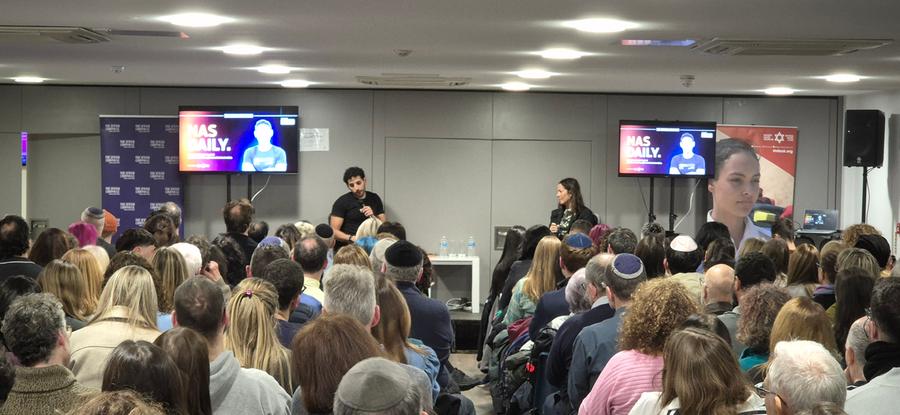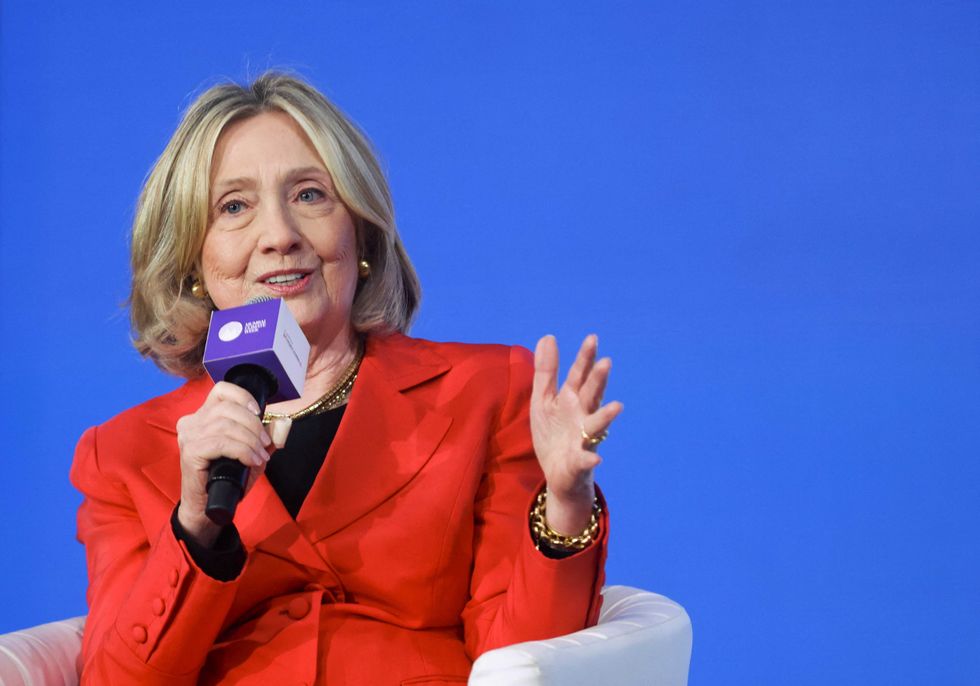In a thought-provoking discussion at the Radlett United Synagogue on a chilly November evening, Arab-Israeli influencer Nuseir Yassin, known as Nas Daily, articulated his vision for Israel and the future of coexistence in the region. Speaking to a full house at an event hosted by the Jewish Chronicle in partnership with Magen David Adom UK, Yassin emphasized the importance of Israel as a cultural and social entity worth defending.
Yassin opened the evening by engaging directly with the audience, a dynamic approach that highlighted his natural ability to connect with people. His social media empire boasts over 60 million followers, a testament to his engaging style. The conversation shifted to his experiences growing up in a small town near Nazareth, where he had little interaction with Jewish peers. “It’s a mutual stand-off,” he noted, acknowledging the barriers that existed between him and Jewish Israelis during his formative years.
His perspective changed dramatically after receiving a scholarship to study at Harvard University. “At Harvard, I made my first gay friend, black friend, Jewish friend, Israeli friend, female friend,” he shared. This exposure led him to realize the depth of his cultural identity as an Israeli, despite his Arab heritage. “I had nothing in common with [Jordanian Palestinians],” he remarked, illustrating how his interactions at university reshaped his understanding of identity and belonging.
Yassin expressed a strong desire to improve Israel, stating, “I think Israel can be three times better, three times richer, three times more tolerant.” He unequivocally stated his commitment to the country, declaring, “So if that makes me a Zionist, great, let’s go!” This declaration reflects a growing sentiment among Arab-Israeli citizens, as Yassin claims that approximately 80 percent of Arab-Israelis aspire to live under an Israeli government, although fewer are willing to voice this publicly.
The challenges posed by groups like Hamas were not lost on Yassin. He described the situation as “unrecognizable” and emphasized the difficulty of identifying with such factions. His optimism about the future of Israel extends beyond its borders, as he views the Gulf Cooperation Council (GCC) countries—specifically Bahrain, Saudi Arabia, and the United Arab Emirates—as models of progress and potential collaboration.
While his outlook on Israel is hopeful, Yassin’s sentiments about the UK were less favorable. “I don’t recognize Britain,” he stated, humorously referencing media perceptions. He proposed controversial ideas for integration, suggesting that both Arab-Israelis and Haredim should be mandated to serve in the Israeli military alongside their secular Jewish peers. “If you let people be people, they will be tribal,” he warned, advocating for forced assimilation as a means to foster unity.
As the event concluded, Yassin engaged with audience questions, reflecting on the deeper meanings of life. He ultimately concluded, “I think the human experience is to be pressured to create something of value.” His reflections on identity, belonging, and the role of Israel resonate with many, making his insights not only relevant but vital in the ongoing discourse surrounding the region’s future.
Through his influential platform and engaging dialogue, Nas Daily continues to challenge perceptions and inspire hope for a more inclusive and prosperous Israel.







